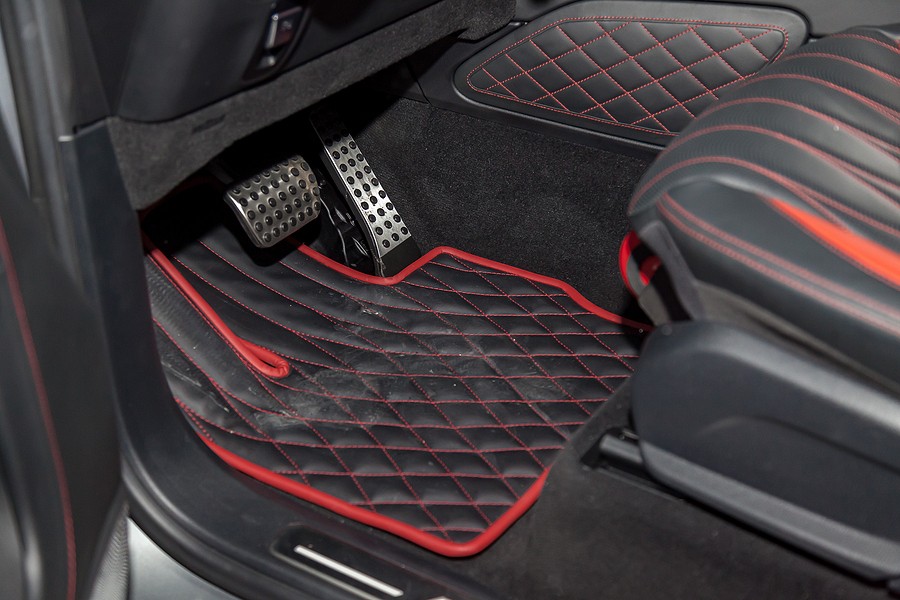If your brake pedal goes to the floor, here's what could be wrong:
- The brake fluid is leaking
- The master cylinder is faulty
- The brake booster is bad
- The brake system has some air
The braking system is one of the most critical systems in your vehicle that you have to maintain. It has to do with your safety, and any simple problem in this system could easily get you involved in major car accidents and risk your life.
You could deal with many problems in your vehicle's braking system, but one of the most critical ones is those related to the brake pedal going to the floor without any clear reason.
Understanding what causes the brake pedal to go through the floor is essential to help you resolve the issue. Otherwise, you're going to be overwhelmed with all potential reasons that might not be the most common.
This article walks you through the four most common reasons brake pedal goes to the floor. Once you determine the reason, we will provide you with recommendations on how to resolve the issue and get your vehicle going again.
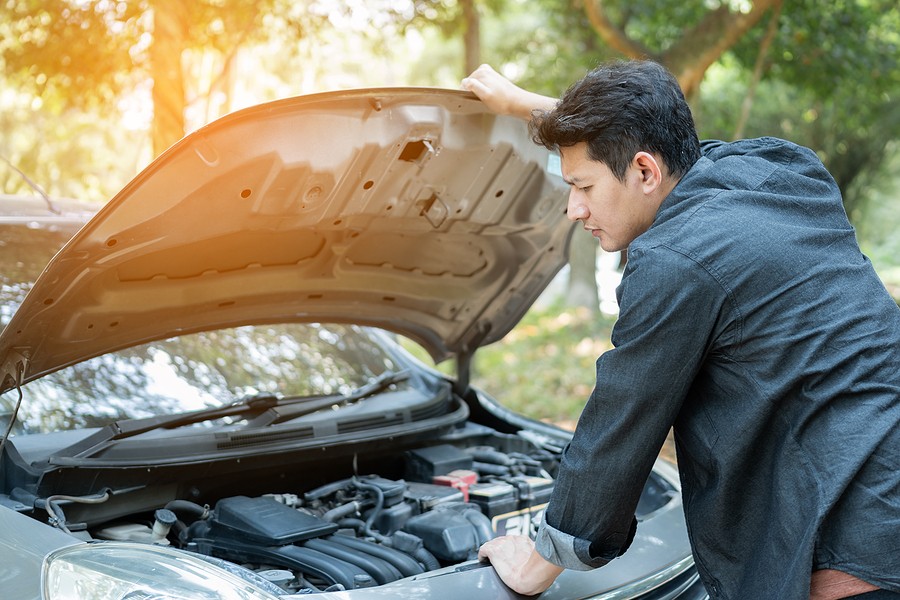
The brake pedal goes to the floor: causes
Have you ever tried pressing on the brake pedal and noticed that it's going to the floor?! This is a critical situation and can be extremely scary, especially for inexperienced drivers.
The good thing is that this situation is very common, and many readers reach out to us wondering what causes situations where the brake pedal goes to the floor without any other clear symptoms.
Automotive experts put together a list of the four most common reasons for the brake pedal going to the floor without any clear reason:
1. The brake fluid is leaking
The first and most common reason for your vehicle brakes to go to the floor is when you have brake fluid leaking. Your vehicle is expecting a specific level of brake fluid, and when this fluid drops below a certain minimum threshold, all problems start, and this is where you can easily deal with major complications that could cost you your life.
Over time of use, it's not surprising to see some rust or contaminants building up inside the brake fluid lines. This causes the fluid to escape through the weak seals and drop to the floor. Therefore, you must look underneath your vehicle and see if there are any signs of like fluid leaking underneath the car.
Whether this fluid is a braking fluid or anything else, you should never ignore it because it is always linked to a major internal problem. However, you shouldn't be too worried if you confirm that this is only water dripping from the AC system.
2. The master cylinder is faulty
If you confirm that nothing is leaking underneath the car and look closely to confirm there are no signs of brake fluid evaporating after hitting the hot surfaces, the next step is to check on the master brake cylinder.
Over time of use, this cylinder is also expected to fail, and it's not designed to last forever. Therefore, you should check on the master cylinder located right behind the brake pedal and see if it's causing the problem.
The master cylinder is responsible for ensuring that the brake fluid is pushed to the caliper so your vehicle reduces speeds when needed. This lender has lots of seals around it, and it is not surprising to deal with amateurs in any of these week sales of our time of use.
If the brake master cylinder fails, you can easily notice that your brake pedal drops to the floor without any clear reason. Thus, your mechanic needs to perform other inspections to confirm whether your problem is coming from this cylinder or something else. You don't want to go ahead and replace the cylinder and pay for these expensive repairs when it's not the real cause of the problem.

3. The brake booster is bad
Another important component that could cause your cylinder to go down to the floor is the brake booster. The brake booster is located between the brake pedal and the master brake cylinder. This booster is responsible for increasing the brake's power whenever you touch the brake pedal, so you achieve the best out of your vehicle's performance whenever you need to slow it down or stop it.
Like what happened to the brake cylinder, it is easy to deal with damages in the brake booster that requires replacement. Otherwise, your brake pedal will continue touching the floor every time you press it, which leads to risky situations that prevent you from slowing down your vehicle or stopping it in emergencies.
4. The brake system has some air
Finally, some of the very common reasons for the brake going to the floor without any explained reason is when there is air in the brake system. The brake system is a compressed system that should be closed.
If there is any cause for air to get inside the braking system, it disturbs the internal pressure and causes it to increase or probably decrease depending on what's going on. Therefore, your braking system will not perform as a choice, and one of the first and most common consequences is when the brake pedal goes to the floor without any clear reason.
Therefore, if your mechanic confirmed that none of the previous causes resulted in your brake pedal going to the floor, he should look for any air signs inside the braking system. Your mechanic should have the necessary tools to help him perform this job and determine the internal pressure. Once this is confirmed, there are many techniques to help Your mechanic get rid of this error simply without needing to install any major components.

Brake pedal goes to the floor: solutions
Once you have a good idea about what caused the brake pedal to go to the floor without any queries, the next step is to determine the best solution to resolve this issue. Understanding the solutions is extremely important because otherwise, you'll continue having the problem, and you'll get to where you cannot control your car.
Here's all you need to do:
1. Diagnose for any leaks
The first thing you need to do is perform a quick visual inspection of your vehicle and confirm that there are no clear external leaks. However, this is not the end. You need to also look for any signs of internal leaks because sometimes your vehicle might not show clear symptoms of fluid dripping on the floor.
You can look at the pipes and see whether there was a leak and the water or fluid evaporated right after you touched the hot surfaces or not. So if you didn't see any signs of internal or external leaks, you could move forward to the next step.
2. Check the fluid level
You can then perform a quick inspection of the current brake fluid level. If you notice that it's not the right optimum level, this indicates an additional leak that you're not detecting by just performing a visual inspection which means your mechanic can do the next steps.
You get out top off the brake fluid for now and see if it doesn't drop significantly. If you notice that it's still dropping significantly, you might not want to risk your life and drive this vehicle; instead, you should go to the nearest repair shop.
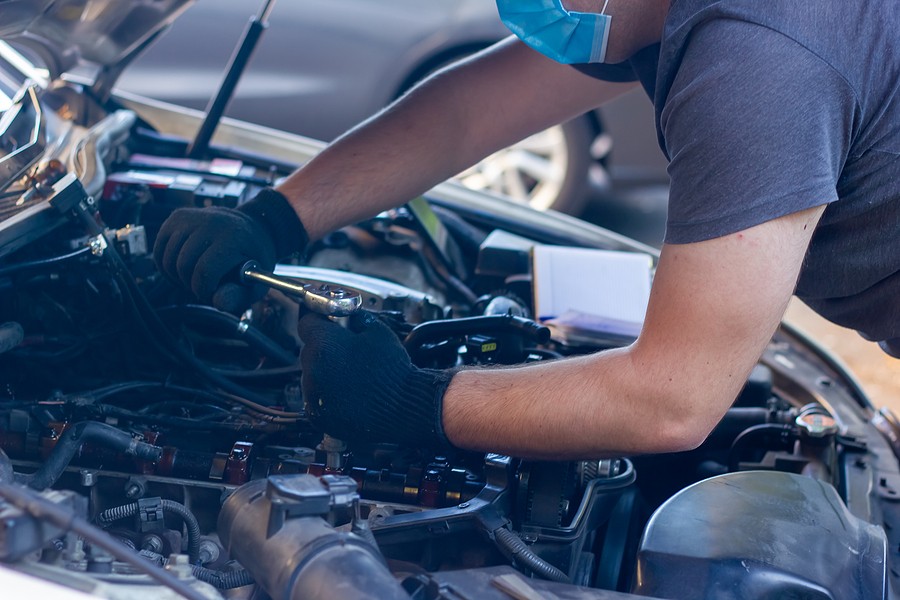
3. Consider bleeding the braking system
If you confirmed that your problem has to do with air inside the braking system, you can perform it's not as bleeding, which means you take out any extra air inside the rating system that shouldn't be there. But, of course, if you're not comfortable performing this process, you can always leave it to your professional and have him do the job rather than you risking your vehicle and probably introducing other problems that might cost you a lot of money.
4. Inspect the master cylinder
There are many ways to inspect the master cylinder and see if it's working properly. For example, you can take out the master brake cylinder and look for any signs of visual damage. Then you can confirm that this is a problem with the master cylinder, and you have to replace it. Depending on your mechanical skill sets, you might even be able to replace the cylinder yourself without needing a professional.
Note that you got to be very careful when purchasing the new brake master cylinder because there is a very high chance that you can purchase the wrong one if your check with your vehicle’s owner’s manual, and once you buy the new one, consider comparing it to the old one so you don't risk your money and install a faulty component that your vehicle is not expecting.
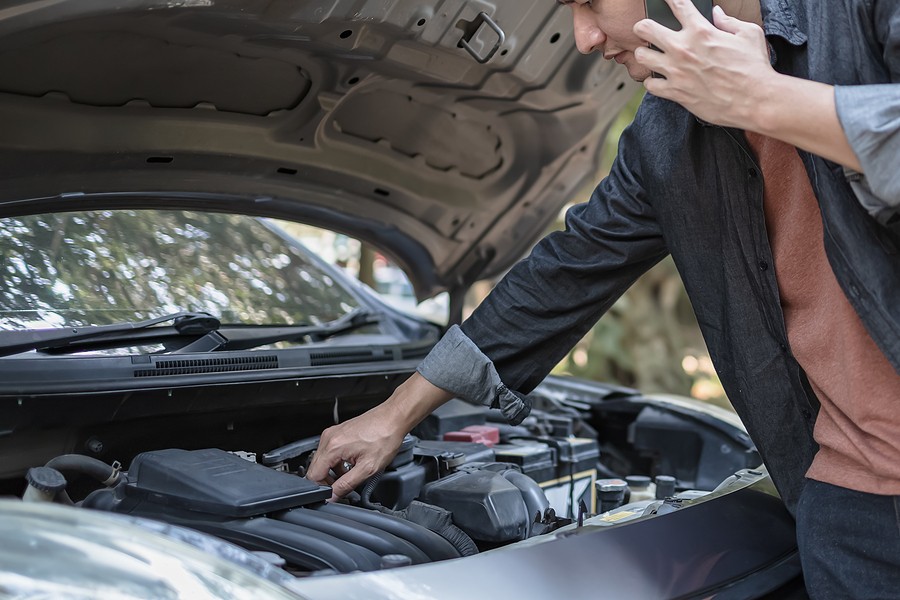
5. Check the brake booster
You could also disconnect the vacuum hose next to the brake booster and see if it is the one causing your issue. Try unclogging any dirt or contaminants inside this hose and see if it helps. If you confirm that the brick is causing the problem, consult your mechanic and consider purchasing a new one and installing it.
Again, you don't want to install a significant component in your braking system without having the right skills. Since this system has to do with your safety, you're not recommended to perform any repairs unless you have the right skills, even if it sounds very simple to you.
Of course, this means that you got to consider paying more for labor costs, but it's worth it considering what would be the negative consequences if you introduce any mistake to this system.
Also, you can still save on labor costs by going to a small independent shop rather than going to your dealership because labor cost is much cheaper at that location.
6. Consult your mechanic
After performing all these troubleshooting and repairs, if you are still dealing with issues where your brake pedal goes to the floor without any clear reason, the best option would be to consult your mechanic.
Your mechanic should have the necessary tools to help him detect the actual culprit. It could be one thing going on wrong, but it could also be a combination of multiple faulty components that lead your pedal to get to the floor without any clear reason.
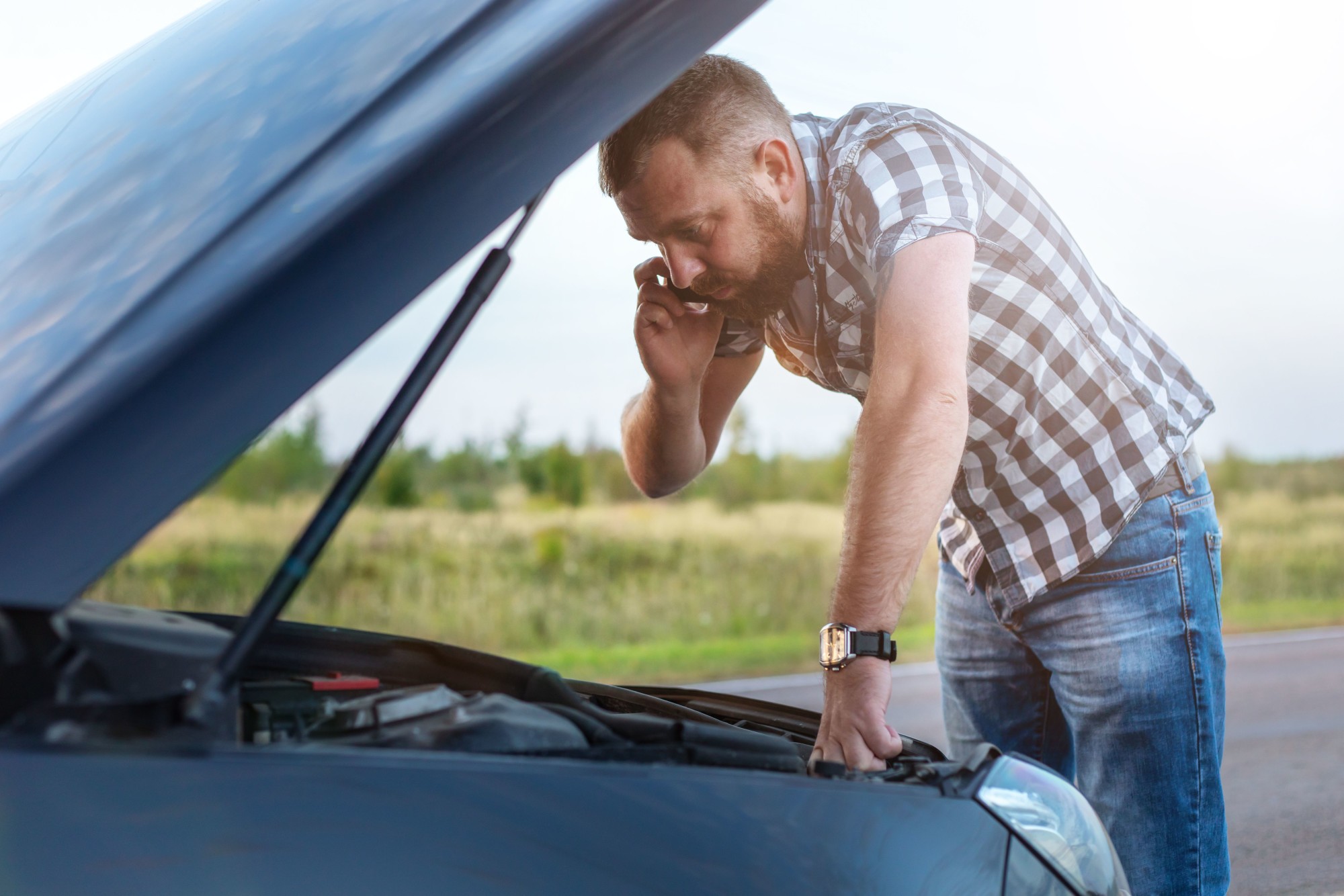
Final thoughts
Issues with the braking system should not be ignored because they can easily lead to major complications that could put your life at risk. Even if you were not involved in risky situations, there is a high chance that you can impact other people's lives, especially if you're driving in traffic or at highway speeds.
This article walked you through four common reasons for situations where the brake pedal goes to the floor without any clear reason. You must inspect potential causes and resolve the issue as soon as possible to prevent any risky situations.
If your mechanic notices that repair costs will be extremely high, you got to step back and evaluate the situation carefully. Sometimes, it's not wrong to admit that the vehicle is not worth the repair, and you should sell it instead of wasting your time and money. If you've ever looking for someone to purchase your vehicle considering the braking system problems, Cash Cars Buyer is always here to help you!
Cash Cars Buyer is one of the top-rated car removal companies in the nation that guarantees to pay you the top dollars and provide you with free towing despite your living location around the United States.
Our process is very straightforward and doesn't take more than a couple of days to get your car removed safely and for the most money.
All it takes you is to:
- Describe your car's type and condition
- Receive our instant free quote
- Accept the quote
- Get your car removed and receive your cash payment on the spot!
To learn more about our process and our team, you can reach out to us by calling us at (773) 781-4363 or visiting our home page click on the free instant online offer.

